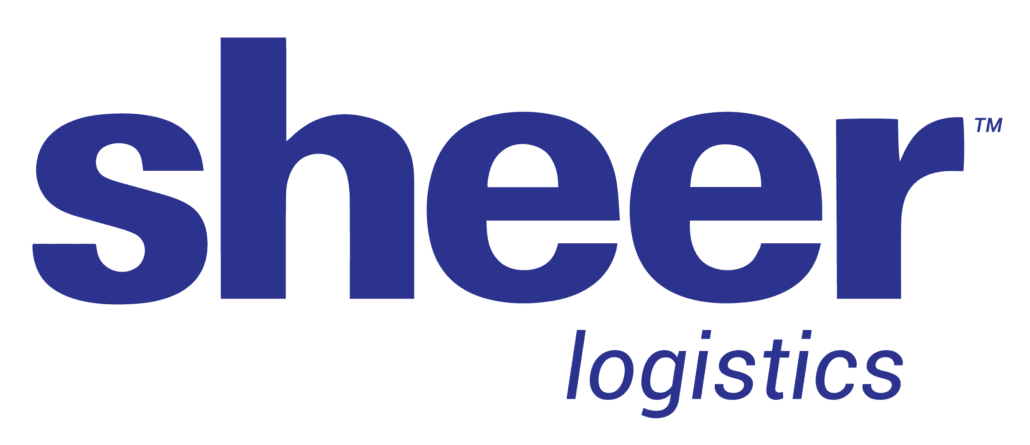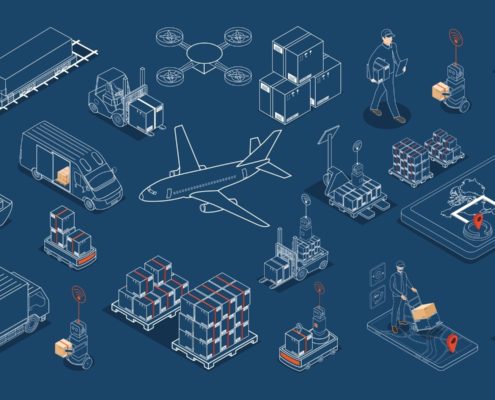Cost Savings
Reducing costs is one of the main motivations for companies that seek to outsource logistics and supply chain functions to 3PLs and 4PLs. Here are some of the main ways that these partnerships help shippers reduce costs.
- Economies of Scale: Because 3PLs and 4PLs serve the needs of multiple clients, shippers can benefit from the bargaining power related to the large volumes of freight these LSP’s handle, thereby reducing costs. A transportation-focused 3PL company can also help shippers reduce costs through freight consolidation, by combining multiple less-than truckload shipments from multiple clients into a single truckload.
- Reduced Technology Costs: Implementing and maintaining sophisticated logistics technology platforms such as Transportation Management Systems (TMS), Warehouse Management Systems (WMS), integration platforms, and other tools can be prohibitively expensive for companies to manage internally. By partnering with an LSP, shippers can get access to these tools without the large upfront capital investment and ongoing technology and labor costs associated with maintaining these systems.
- Infrastructure and Overhead: Outsourcing can reduce or even eliminate the significant costs associated with purchasing and maintaining warehouses, distribution centers, fleets, and related labor.
- Labor: In addition to the labor savings related to outsourcing logistics operations, warehousing, distribution centers, and fleets, companies can realize further cost reductions when outsourcing supply chain management functions at the corporate level.
Read this case study to learn how Sheer Logistics saved a client more than $2.1MM in the first two years of a managed transportation partnership.
Access to Advanced Technology
Gaining access to logistics management software solutions is a clear advantage of partnering with a logistics solutions provider, and these benefits go far beyond cost savings. By providing technologies such as TMS, WMS, Real-Time Transportation Visibility Platforms (RTTVP), and the integration software needed to connect disparate systems and gain meaningful insights via analytics, 3PLs and 4PLs give their clients a leg up on the competition. Additionally, LSPs have experienced operators that have an intimate knowledge of these tools, which can further empower their shipper clients by sharing best practices and other guidance.
Read this case study to learn how Sheer Logistics implemented the Sheer TMS in just six weeks, resulting in greater visibility, efficiency, and cost savings for the client.
Focus on Core Business Activities
Outsourcing transportation, warehousing, distribution, order fulfillment, and other logistics and supply chain functions can streamline your operations and free up your internal staff to focus on the core competencies of your business.
Read this case study to learn how Sheer Logistics’ managed transportation services saved this client more than $1MM while providing resources that helped free up their internal team to focus on core strategic initiatives.
Scalability and Flexibility
As any business leader knows, businesses rarely grow in a predictable, linear fashion. Growth can sometimes occur suddenly, offering you little time to staff up to meet the increased demand. For other businesses, demand can be seasonal, and while this may make it easier to predict, it is still costly to hire and train workers that you will only need for a limited amount of time, only to repeat the cycle when the next seasonal demand spike occurs. Outsourcing to a 3PL or 4PL can provide your business with the “bench strength” you need to scale up and the flexibility to scale down as your business needs change, without making large investments in employees or logistics infrastructure. Think of these as “on demand” resources that you can tap into when needed and put back on the “bench” when the demand surge passes.
Read this case study to learn how Sheer Logistics supported a client’s aggressive growth plans through a strategic core carrier process.
Risk Management and Expertise
Supply chain risk can come in many forms, from inventory management issues that lead to overstock or stockouts to geopolitical events, natural disasters, or other disruptions. Partnering with an LSP can arm you with the tools, resources, and flexibility you need to spot these risks in advance and to take corrective action before they cause serious disruptions.
Advanced supply chain partners can also provide you with predictive analytics (what may happen) and prescriptive analytics (what to do about it) tools that can enhance your supply chain agility and help you mitigate risk.
For example, when the container ship Ever Given blocked traffic on the Suez Canal in 2021, Sheer Logistics leveraged visibility solutions and predictive analytics capabilities to quickly assess the supply chain impact and reroute hundreds of shipments on behalf of our clients.
Improved Shipping Times
If pickup and delivery times are a concern, partnering with a transportation-focused third-party logistics company can help by:
- Providing you with access to larger, more curated network of transportation providers
- Creating enhanced visibility to shipments in transit to spot and address issues proactively
- Measuring carrier performance and ensuring your shipments are matched with the best possible carrier
- Streamlining the shipping process
- Providing thorough planning and focused execution
Access to a Global Network
Beyond domestic carriers, partnering with the right 3PLs and 4PLs can open up a world of possibilities through their relationships with multimodal carriers, warehouse providers, distribution centers, technology partners, and more.
Is a 3PL Right for Your Business?
Now that we’ve explored the benefits of partnering with third- and fourth-party logistics companies, here are some signs that your business is ready to outsource some or all of your logistics and supply chain functions:
Whether you’re a retailer, manufacturer, or an ecommerce business, working with a 4PL or 3PL partner offers a wide range of benefits that can transform how you manage your logistics and supply chain operations. From cost savings and access to advanced technology to increased flexibility, scalability, and risk management, LSPs provide tailored solutions to meet your evolving needs. If you are facing rising logistics complexities, customer demands, or growing operational costs, outsourcing these functions allows for greater efficiency in your logistics processes, enabling your internal teams to focus on core business activities and strategic growth initiatives. Ultimately, the right logistics partnership can be a key driver in optimizing your supply chain, improving the end customer experience, and enhancing overall business performance.









